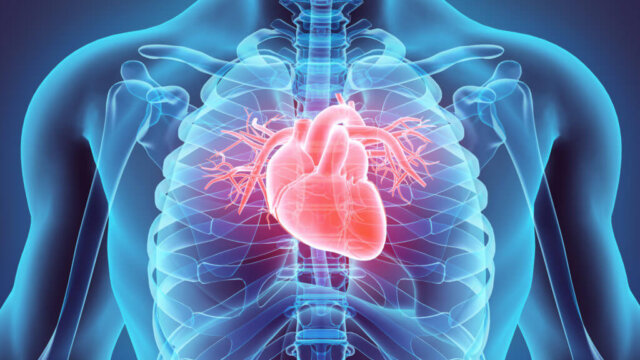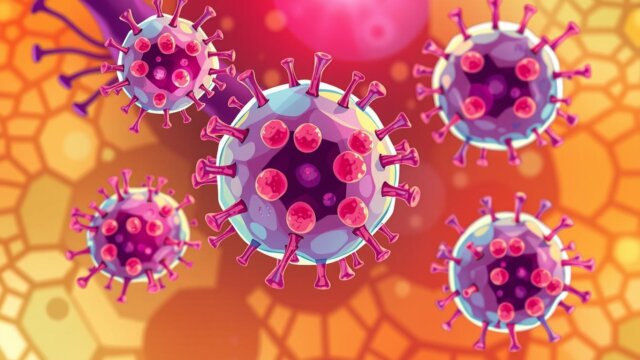FTC disclaimer: This post may contains affiliate links and we will be compensated if you click on a link and make a purchase.
For over 2,000 years, throughout the world, there has been a common belief that “fish is brain food,” and this folk wisdom has been validated by modern research.
Fish is brain food. And the oil in fatty fish contains concentrated amounts of the essential ingredient, which benefits your brain.
Fish oil contains high concentrations of Omega 3 fatty acids. More specifically, fish oil contains the two primary “long-chain Omega-3 fatty acids,” EPA (Eicosapentaenoic Acid) and DHA (Docosahexaenoic Acid).
DHA And EPA Fatty Acids are critical for your brain health.
Let’s look at what component of fish oil makes it critical for brain health and how that component affects both brain development and brain function.
Omega-3 fatty acids are Vital.
Fish oil supplements provide omega-3 essential fatty acids (EFAs), which are necessary for the human brain to function at its optimal level.
The body cannot produce these omega-3 EFAs, so they must be obtained through food intake and other supplementation.
Omega 3s Are Critical For Brain Development.
You need to know that the brain is primarily composed of fat.
Omega-3 fatty acids are beneficial because they provide fluidity to cell membranes and improve communication between brain cells.
Further, for the fetus’ brain to develop properly, you need polyunsaturated fats, especially the long-chain Omega-3 fatty acids found in fish, EPA, and DHA.
DHA and EPA (especially DHA) are building blocks, which means that they are part of the cell membranes throughout your body. (All of them are estimated to be between 50 million and 100 trillion!)
However, DHA and EPA are found in the highest concentration in the retina, brain, and sperm.
Omega-3 fatty acids are believed to benefit the neurotransmitters that carry messages from one part of the brain to another and other parts of the body.
Studies indicate that low levels of Omega-3 impair neurotransmitters and keep the signals from getting through, resulting in various medical problems.
Omega 3s are also critical for fetal vision development.
Studies revealed that having sufficient Omega-3s is most important during the last three months of fetal development when the fetal brain grows threefold.
After birth, Omega 3 continues to be particularly critical for the infant’s brain development during the first several months of life.
Deficiency in Omega-3 fatty acids
Deficiencies in Omega-3 fats have been linked to:
- Depression
- Anxiety
- Mood Swings
- Bipolar Disorder
- Schizophrenia
- Postpartum Depression
- Alzheimer’s Disease
- ADD
- ADHD
- And others
Research has shown that patients suffering from these disabilities have abnormally low levels of Omega-3s in their blood.
Let’s look in more detail at some of these brain functioning problems and how they are affected by Omega 3s.
Omega-3 fish oil helps in Depression.
Does fish oil help depression, whether you already have it or want to prevent it?
It’s been shown in various clinical studies that people who are depressed have low omega-3 fatty acid levels.
Most Americans only consume about 120-130 mg/day of DHA and EPA omega-3 fatty acid, even though the recommended daily dosage is at least 650 mg.
Additionally, research indicates that people diagnosed with depression lack a healthy balance between the amount of omega-3s and omega-6s in the body.
The average American consumes 14-25 times more omega-6 than omega-3, which is not good.
Does Fish Oil Help Depression?
As long as you take a high DHA and EPA omega-3 fatty acids supplement, you can benefit from it.
Just try to get a brand that contains at least 250 mg of DHA and 100 mg of EPA. And make sure half of the supplement is omega-3 fatty acids in general.
How Does Fish Oil Help Depression?
It’s been shown in many studies that omega-3 fatty acids (especially DHA omega-3s) help nerve cells communicate with each other.
It is an important step in maintaining and preserving good mental health.
Moreover, studies have also confirmed that leveling out the balance between omega-3 fatty acids and omega-6 fatty acids can help alleviate depression.
Omega-3 Fish Oil helps in Mood Disorders.
Studies have indicated that Fish oil pills are the best mood stabilizers as their constituents have a favorable effect on the brain.
Like all other things, fish oil pills need to be taken regularly and in the right quantity. Taking it in random doses will not help the body.
Studies show that omega-3 has to be taken 1.5 – 3.5 grams daily for its good effects on mood disorders.
Food has to be taken adequately with fish oils to help soothe your nerves and act as the perfect mood stabilizer.
In one study, researchers took magnetic resonance imaging (MRI) tests to study participants who recorded everything they ate during the test period.
The study concluded that the more DHA a person consumed, the more gray matter in three areas of the brain linked to mood: the amygdala, the hippocampus, and the cingulate.
Further, studies support a protective effect of omega-3 EFA intake, particularly eicosapentaenoic acid (EPA) and docosahexaenoic acid (DHA), in mood disorders.
Omega-3 Fish Oil prevents Bipolar Disorder.
The drugs used to treat bipolar disorder often have side effects and problems. It leaves people suffering from the condition looking for newer, more natural alternatives.
What Is Bipolar Disorder?
Bipolar disorder is a major mood disorder in which the person suffering from the condition has severe mood swings ranging from mania to depression.
The condition used to be referred to as manic depressive but has recently been coined as bipolar.
A bipolar person experiences extreme highs and extreme lows.
The lows and highs can last for a period of hours or days, depending on how severe the condition is.
While there is no cure for bipolar disorder, treatments for the condition are available.
Typical Treatments for Bipolar Disorder
Until recently, typical treatments for bipolar disorder included drugs like lithium, Abilify, Depakote, Zoloft, Prozac, and an array of other medications.
Normally, the medications were given as a cocktail, with a bipolar patient being given more than one medication at a time.
The Drawbacks of Traditional Treatments
The drawbacks of the medical cocktails were the side effects caused by the medications.
Because mixtures of medications are given when treating bipolar disorder, it’s not uncommon for the patients to experience significant adverse reactions to the medications they are being given.
How does Omega-3 fish oil support bipolar disorder?
Harvard study indicated that fish oil might be beneficial in helping to treat Bipolar Disorder.
The working ingredient in fish oil is the Omega-3 essential fatty acid.
Omega-3 helps maintain healthy brain functioning. At the same time, more trials still need to be conducted concerning bipolar disorder and Omega-3.
Another study has shown that Omega-3 fish oil helps reduce bipolar disorder symptoms significantly.
Many more studies are needed to confirm that Omega-3 fish oil can aid patients living with Bipolar Disorder.
Omega-3 Fish Oil Help in Schizophrenia
Omega 3 fatty acids have been shown to treat several conditions, but there’s clinical evidence that they may also help treat schizophrenia.
What is Schizophrenia?
Before using Omega 3 fatty acids to treat schizophrenia, natural remedies were not widely recognized in treating the condition.
Schizophrenia is a condition where the person living with it suffers from distorted thinking, paranoia, and disorganized speech and thought, among other mental symptoms.
What Causes Schizophrenia?
What exactly causes schizophrenia is unknown, but studies have indicated that some people who have Schizophrenia have low levels of Omega-3 fatty acids in their system.
Some studies have also shown that adding Omega 3 to the diet of Schizophrenic patients has reduced the symptoms of the condition.
Getting enough Omega 3 from diet alone is highly unlikely for most individuals.
While there is no cure for schizophrenia, treatment with supplements containing Omega 3 fatty acids may benefit those suffering from the condition.
Research revealed that by taking Omega 3 fatty acids, some patients with schizophrenia have benefited from reduced symptoms, including an increase in cooperative behavior and a decrease in hallucinations.
Because schizophrenia can be such a debilitating condition, it is encouraging to see that a natural remedy like Omega 3 fatty acids may make a big difference in treating the condition.
Omega-3 Fish Oil helps in reducing Postpartum Depression.
Antidepressants can effectively treat postpartum depression, but nursing mothers may be hesitant to take antidepressant medications because of unknown effects they may have on their babies.
Therapy can help new moms to work out unexpected depressed feelings, but for clinical postpartum depression, medicine alone may not be enough.
This is where omega-3 essential fatty acids supplements can be beneficial.
Fish oils for Postpartum depression
Research has proven that fish oil alleviates symptoms of general depression and can help prevent and eliminate symptoms of postpartum depression.
Further, it will also protect you from the scary potential side effects antidepressant medications may cause.
Additionally, research has indicated that fish oil also helps in promoting optimal brain function in babies when nursing mothers are taking fish oil supplements.
Pregnant mothers are recommended to take omega-3 supplements
The United States federal government recommends pregnant women limit their servings of certain types of fish to no more than 12 ounces per week.
However, fish oil supplements have been proven safe and extremely beneficial for both mom and baby.
Omega-3 Fish Oil Effective in Alzheimer’s disease
Studies discovered that patients with Alzheimer’s have a lower blood plasma level of DHA.
Researchers showed that those with higher levels of DHA in their blood had a 47% lower chance of developing dementia and a 39% lower chance of developing Alzheimer’s Disease compared with patients with lower levels.
In another study, researchers discovered that supplementing patients with a DHA-rich fish oil capsule slows down the progression of mild Alzheimer’s disease.
Research has shown that people who eat oily fish or take fish oil supplements score higher on IQ tests.
What is Alzheimer’s Disease?
Alzheimer’s disease is the most common cause of dementia. Dementia is marked by chronic confusion, loss of memory, and a loss of cognitive function.
Studies have shown that a diet high in fish consumption lessens the risk of Alzheimer’s development.
Further, studies have shown that societies with diets high in fish and fish oil capsules have fewer instances of Alzheimer’s and dementia than societies with little fish in their diets.
How does fish oil prevent Alzheimer’s Disease?
Research studies have shown that the DHA in fish oil capsules helps prevent plaque buildup in our brains. This is the same plaque that can lead to Alzheimer’s disease.
By preventing the plaque buildup, you can prevent the development of the Alzheimer’s condition.
In addition to preventing the condition, studies indicated that by taking fish oil capsules regularly, you could slow the progress of Alzheimer’s Disease.
Omega-3 Fish oil helps in ADHD.
A study with children who have ADHD noticed a marked improvement in children who took an Omega-3 supplement.
Further, the results show children suffering from ADHD benefit from taking Omega-3 supplements.
In the study, researchers divided children into two groups. One group was given Omega-3 supplements of 500 mg each containing pure ethyl-EPA daily. Researchers gave the second group of children a placebo.
After five weeks, the researcher noticed a significant improvement in the children’s behavior taking the Omega-3 supplement.
Further, after ten weeks, the improvement remained for the entire 15 weeks of the study.
The researchers feel this treatment worked because they gave the children Omega-3 supplements containing only EPA and no DHA.
Research shows that DHA, one of the essential fatty acids in Omega-3, is effective in improving heart health, but EPA is most effective in brain health and improving mood and behavior.
According to this study, Omega-3 supplements with high concentrations of EPA can help children with ADHD.
Always talk to your doctor and find a source of Omega-3 that contains EPA. While you probably won’t be able to find a fish oil supplement that contains only EPA
How to get Omega-3 Fish Oil Supplement
If you or someone you know is suffering from a brain and mental disorder, taking a quality dietary supplement with Omega 3 fatty acids is extremely important.
Before taking omega-3 supplements, you must consult your doctor and find out the recommended dosage of fish oil.
When taking an Omega 3 fatty acids supplement, it is crucial to make sure that the supplement is pharmaceutical grade to avoid the risk of contaminants.
Pharmaceutical-grade fish oil capsules are processed to ensure that you won’t be taking in any harmful contaminants when you take your fish oil capsules.
When choosing a fish oil supplement, look for the below labels;
- Natural and bio-available fish oil supplement
- Pure, natural Hoki fish triglyceride oil
- Highly purified molecularly distilled ethyl ester tuna oil
The above levels ensure all the excess substances (mercury, heavy metals, and toxins) are not present in fish oil supplements.








